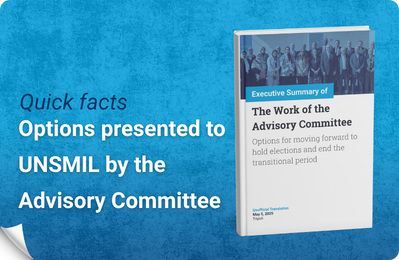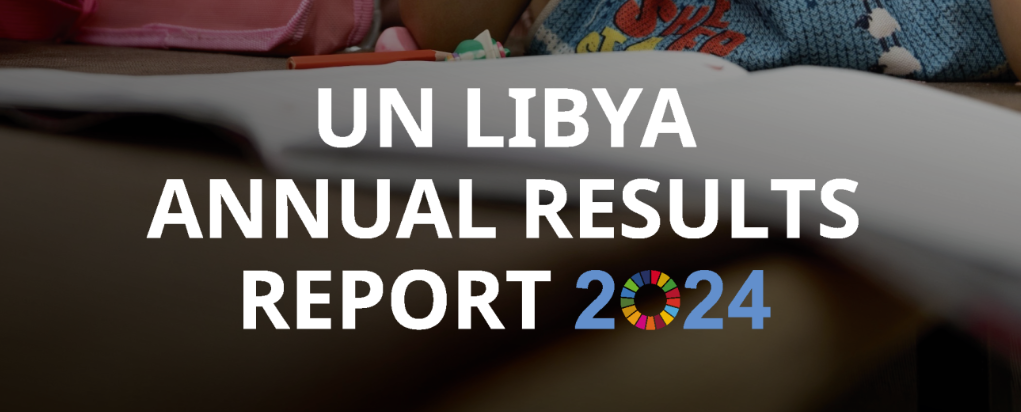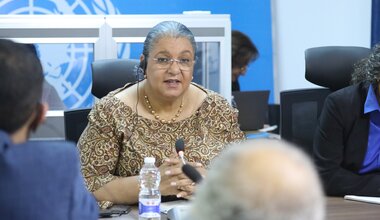State representatives and experts discuss best remedies to address grievances resulting from past property ownership laws and practices in Libya
A thematic meeting on real estate, land and property rights in Libya was organized in Tunis by UNSMIL and UNDP on 9-10 July as part of the project “Towards National Reconciliation in Libya”. The meeting brought together members of the Government of National Accord (GNA), the House of Representatives (HoR), the High Council of State (HCS), the Constitution Drafting Assembly (CDA), heads of the State Property Authority and the National Real Estate Registration Authority, an association representing landowners affected by real-estate related laws, as well as various municipalities, councils of elders and national experts.
Discussions helped to identify the best remedies to address the legacy of land and property violations in Libya. Participants discussed the consequences of past ownership policies and possible solutions, especially with regards to Law No. 4 of 1978 and Law No. 123 of 1970, which expropriated many houses and landowners in favour of the State.
As for possible solution, participants discussed the legacy of the the Committee established in 2006 to provide compensations to owners affected by Law No. 4, as well as the role of traditional leaders in addressing the consequences of Laws No. 123 and 142. They also analysed how Law No. 29 on Transitional Justice, which includes measures of reparations, could deal with these property-related grievances.
After two days of discussions, participants agreed on the following points:
-
- Addressing property ownership grievances is key to national reconciliation in Libya, and should be a priority of State institutions, building upon previous efforts to that end.
- Law No. 4 should be either retroactively repealed or amended.
- Grievances resulting from Law No. 4 must be fully addressed, including through the Compensation Commission established in 2006, after having corrected its mandate.
- Laws No. 123 and 142 should be either abolished or amended.
- Reparations for victims affected by Law No. 4 must be provided, either as monetary compensations based on the current market value or, where possible, through full restitution.
- Current occupants, especially when they demonstrate good will, should be compensated.
- Traditional leaders and customary solutions should be mobilized to address these grievances, while not violating existing laws.
- Property ownership rights must be at the heart of transitional justice, while not depending upon the implementation of Law No. 29 (2013).
- International support in addressing this file should only be limited to technical support and always based on Libya’s specific needs.
 United Nations Peacekeeping
United Nations Peacekeeping UN
UN












